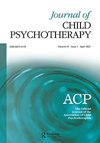如何生活。该怎么办。伟大的小说如何帮助我们改变
IF 0.8
Q4 PSYCHOLOGY, CLINICAL
引用次数: 0
摘要
乔什·科恩的精彩著作《如何生活》。该怎么做。伟大的小说如何帮助我们改变”,是一本需要慢慢阅读和珍惜的书。对我这个一生都在阅读和研究小说的人来说,这是一本引人入胜的书。它结合了我的两大爱好,文学和精神分析(如果我可以这样形容它们的话,尽管不可避免地只触及了两者的表面);它提醒了我,为什么我在大学学习文学之后,在本科和研究生学习之后,在做了多年的英语老师之后,自然而然地对心理治疗产生了兴趣。科恩解释说,他的书名来自华莱士·史蒂文斯(Wallace Stevens)的一首诗,这首诗根本没有明确告诉我们如何做人,或者该做什么。这本书的标题是对生活的一种奇妙而幽默的轻描淡写:当我们试图理解这个世界的时候,时间无助地推动着我们前进。这个标题似乎指的是存在主义的问题“我为什么在这里?”’,也与我们每天经历的挣扎有关。科恩分析了这首诗的作用,在他的引言中探讨了这个想法——有没有什么东西可以完全回答这个问题?科恩将自助类型可能提供的处方(该怎么做)描述为“误入歧途”,相反,他观察到:本文章由计算机程序翻译,如有差异,请以英文原文为准。
How to live. What to do. How great novels help us change
Josh Cohen’s wonderful book, ‘How to Live. What to do. How great novels help us change’, is a book to be slowly read and treasured. To me, a life-long reader and student of fiction, it is an entrancing read. It combines my two loves, literature and psychoanalysis (if I can grandly describe them as that, despite inevitably only having scraped the surface of both); and it reminds me why I came so naturally to psychotherapy after studying literature at university, both as an undergraduate and postgraduate student, and after working for many years as an English teacher. The title of his book, Cohen explains, comes from a Wallace Stevens poem, which does not clearly tell us anything at all about how to be, or what to do. The title is such a marvellous and humorous understatement of what it is to be alive: time propels us helplessly forward, while we try to make sense of the world. The title seems to refer both to the existential question ‘why am I here?’, but also to the everyday struggles we experience. Analysing what the poem does do, Cohen explores this idea in his introduction – could there be something which would fully answer this question? Cohen describes the prescriptions (what to do) which might be offered by the self-help genre, as ‘go[ing] awry’, and instead observes:
求助全文
通过发布文献求助,成功后即可免费获取论文全文。
去求助
来源期刊

JOURNAL OF CHILD PSYCHOTHERAPY
PSYCHOLOGY, CLINICAL-
CiteScore
0.70
自引率
50.00%
发文量
46
期刊介绍:
The Journal of Child Psychotherapy is the official journal of the Association of Child Psychotherapists, first published in 1963. It is an essential publication for all those with an interest in the theory and practice of psychoanalytic psychotherapy and work with infants, children, adolescents and their parents where there are emotional and psychological problems. The journal also deals with the applications of such theory and practice in other settings or fields The Journal is concerned with a wide spectrum of emotional and behavioural disorders. These range from the more severe conditions of autism, anorexia, depression and the traumas of emotional, physical and sexual abuse to problems such as bed wetting and soiling, eating difficulties and sleep disturbance.
 求助内容:
求助内容: 应助结果提醒方式:
应助结果提醒方式:


